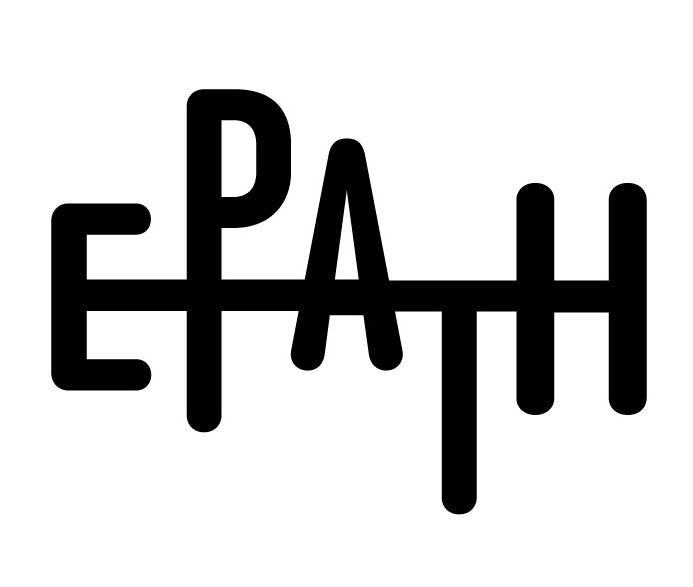Meet your candidates
EPATH invites its members to elect 2 Directors-at-Large to strengthen the EPATH Board. We are very pleased to present you the 11 nominated candidates, from several European countries and professional backgrounds. We invite our members to read their background and vision for EPATH carefully before voting.
How will the voting process work?
All EPATH members (list as of March the 15th 2023) will receive a personal invitation from the WPATH secretary to vote online. You will be asked to rank the candidates to your preference, with a minimum ranking of 3 candidates. Voting is open until April 2nd 2023, 5 pm CET. The results will be calculated using the Single Transferable Voting system. STV enables votes to be cast for individual candidates rather than for organisations/parties and also provides approximately proportional representation, ensuring that substantial minority factions have some representation. The outcome of the election procedure will be announced during the General Assembly at the EPATH Conference in Killarney.
How is the board composed?
The EPATH Board of Directors, includes four At-Large Board members and four Officers of the organization (President, Past President, President Elect, and Secretary- Treasurer). One At-Large board members (Guy T’Sjoen) will leave our board after several years of serving as Board Members. We need two new incoming members to be elected by the membership.
All nominated Board members are in good standing professionally and are recognized in their field. For the EPATH board, maximizing geographical, professional and gender diversity across the Board is paramount. We urge our members to take these criteria into account when invited to select their candidates of preference.
Adèle Zufferey

Background
Adèle Zufferey is a psychologist specialized in psychotherapy with a systemic orientation and sexologist. She is the clinical lead psychologist and director of the Agnodice Foundation, which specializes in supporting transgender and/or non-binary youth and their families. In addition to supporting young people and their families and accompanying them through transitions in schools and/or professional establishments, she is a trainer for health, school and social professionals on gender diversity and leads the clinical intervisions of the Agnodice network for minors. She also participates in scientific research in this field and co-authors several publications.
She is also co-founder of Centre3, a psychotherapy and sexology center based on anti-oppressive, feminist and inclusive approaches. She is also a trainer there, with her colleague Denise Medico, notably through the first training course in French-speaking Switzerland on the therapeutic accompaniment of trans and non-binary people.
Vision for EPATH
My vision for EPATH revolves around the need for scientific, professional and community-based approaches to support transgender and non-binary people. The very violent and attacking international climate of care, especially for young people, must push us to unite and pursue scientifically validated research in this area. The transgender and non-binary youth population expects more than ever our support and professional positioning in their struggles. As the rights and integrity of people of all ages are threatened in many countries, EPATH, along with its international umbrella organization, must be a bulwark against misinformation, discrimination and the rolling back of rights for all.
Daniël Klink

Background
After completing my training as a pediatrician in 2009, I started to work at the Center of Expertise on Gender Dysphoria at the VU Medical Center in Amsterdam. And alongside Peggy Cohen-Kettenis, I gained first-hand knowledge on the Dutch Protocol and contributed to its further development. In addition, I also pursued a fellowship in paediatric endocrinology. Since my move to Belgium in 2016, I have been part of the Center of Sex and Gender at the University of Ghent. In 2019, in collaboration with Genderteam South Netherlands, I started to provide endocrine treatment for Dutch adolescents with gender incongruence. With this a second center in the Netherlands for minors became available. Driven by the need to reduce waitinglists in Belgium and together with a multidisciplinary team of health professionals, a new project was started, leading to the opening of the Center for Gender care Antwerp. I have the honor to become the medical director of this brand-new facility, which will open its doors in the fall of 2023.
Next to clinical care is scientific research my passion. I have (co) authored numerous papers about adolescent endocrine care in international journals and have written several chapters. As the sole European pediatric endocrinologist, I have contributed to the Endocrinology Chapter of the Standards of Care Version 8th. My field of interest focuses – due to my background – on somatic outcome of gender affirming endocrine treatment adolescence.
Vision for EPATH
The current (political) climate is very unfavorable for adolescents with gender incongruence and unfortunately medical treatment may become more and more restricted. I envision for EPATH the task to provide a voice in Europe. A voice based on scientific evidence, respect, empathy, and compassion to advocate the rights of the young adolescents with gender incongruence. As an organization of health professionals, we are obliged to do so and ensure that this young people receive the proper care they so much need. I feel I have all the right credentials to contribute to this voice. My clinical work is European as I provide endocrine care for Dutch, Belgian and Irish adolescents, and young adults. I am a Professional with vast clinical experience and strong scientific background. Also, I am an active member of several national and international health Asociations such as WPATH, ESSM, ESPE. And last but not least Transgender Healthcare is my passion.
Gennaro Selvaggi

Background
Gennaro Selvaggi graduated as Medical Doctor, cum laude, in 1998 and qualified as Plastic Surgeon, cum laude, both at the Catholic University in Rome, Italy. As winner of several international prizes, he completed both Reconstructive and Aesthetic Fellowships in London, Dallas, and Gothenburg. He further obtained a PhD in Gender Affirmation Surgery at the University of Ghent (Belgium, 2010); he graduated with distinction as MSc in Leadership and Managing in Healthcare Organisations at the Plymouth University (2013). Finally, he graduated as MA in Global Public Health, with major in Bioethics (as best graduating student from the College of Global Public Health), from the New York University (2018).
Since 2011, he is Senior Consultant, and Associate Professor in Plastic Surgery at the Sahlgrenska University Hospital in Gothenburg (Sweden); there, he is Project Manager for the Program of Gender Affirming Surgery, and he is performing all types of gender affirming surgeries. He has presented 147 times at international meetings, and published 70 peer-reviewed articles and nine book chapters in the fields of plastic surgery, gender affirming care, experimental surgery, and medical ethics. He is Associate Editor for the Journal of Plastic Surgery and Hand Surgery.
He is lecturing Plastic Surgery and Gender Affirming Care to providers and students in the healthcare field at various universities, including Sahlgrenska University Hospital (Gothenburg, Sweden), Padua University (Italy), and the American University of Antigua.
Vision for EPATH
I envisage EPATH acting as a cultural platform that both trans persons and scientists can use in order to deliver voices as well as scientific information.
Targets are governmental agencies, healthcare organizations and providers. Particularly, EPATH shall have direct contacts with Ministries of Health in Europe, in order to guarantee the provision to care in each member country.
Specific aims are to affirm rights, to promote research, and to spread evidenced-based care for trans persons and for gender non-conforming persons.
Georg Romer
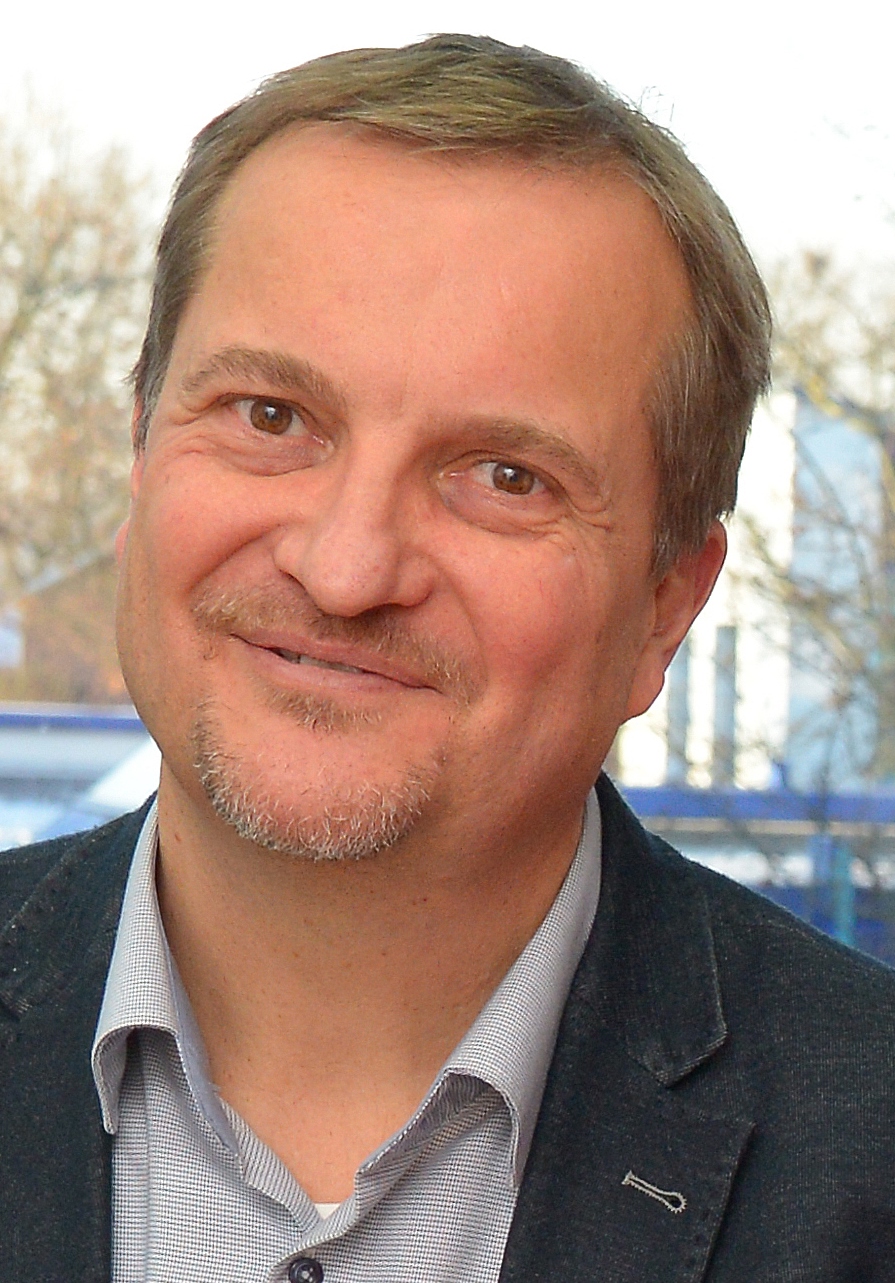
Background
Prof. Georg Romer; M.D., born 1963, is Head of the Department of Child and Adolescent Psychiatry, Psychosomatics and Psychotherapy at the University Hospital Münster, Germany (https://www.ukm.de/kliniken/kinderpsychiatrie-jugendpsychiatrie). Besides that he is lecturer and supervisor in psychoanalytic family therapy.
He completed his studies in medicine at the University of Freiburg , Germany in 1992, got his doctoral degree at the University of Basle, Switzerland in 1994, and qualified for his venia legendi, i.e. postdoc lectural qualification in child and adolescent psychiatry at the University of Hamburg in 2009.
Besides gender dysphoria in childhood and adolescence, Prof. Romer’s main research areas in the past 20 years have been health services and psychotherapy research, mental health in infancy and early childhood (0-6y), children of ill parents, liaison psychiatry and anorexia nervosa.
He has more than 20 years clinical experience in working with gender dysphoric children and adolescents and their families. Thus he had founded the specialized mental health treatment centres for transgender youth at the Universitiy Medical Centre Hamburg-Eppendorf in 1999 and at the University Hospital Münster in 2013.
As one of the leading experts in transgender mental health in childhood and adolescence in the German speaking area, he is the current chairperson of the Clinical Practice Guideline Commission for Gender Dysphoria in Childhood and Adolescence of the German Working Community of Scientific and Medical Societies (AWMF).
Besides that he is founding member and current spokesperson oft the Center for Transgender Health at the University Hospital Münster, which was founded in 2022 and is the first interdisciplinary treatment center of for comprehensive care in transgender Health in Germany (https://www.ukm.de/zentren/center-for-transgender-health)
- Besides that, he is currently the Coordinator of two multisite projects
TRANSKIDS: „Promotion of a non-discriminatory approach towards minor trans* persons through patient-oriented training measures in the health care system“ (2019-2023, funded by German Federal Ministry of Health), - TRANSKIDS-CARE: „Somatomedical treatment for gender dysphoria in adolescence: improving care through epidemiological and health economic evidence“ funded by the GB-A [Federal Joint Committee], i.e. the highest body of self-administration in the German public health system.
Vision for EPATH
In my role as Chairman of the Guideline Commission “Gender Incongruence and Gender Dysphoria in Childhood and Adolescence” of the [German] Working Community of Medical and Scientific Societies (AWMF) and one of the leading experts on gender incongruence/dysphoria in childhood and adolescents in the German speaking area I have become increasingly concerned about polarizing and disinforming campaigns around debates on transgender healthcare in minors. In order to further develop this field and to broaden its scientific base, more collaborative networking among experts and stakeholders across countries is needed, both scientific and political. This is an important mission of EPATH, which I may offer to contribute my professional expertise to.
Jiska Ristori

Background
I am a psychologist and psychotherapist working within the field of transgender healthcare since 2005 at the multidisciplinary Florence’s Gender Team – University Hospital Careggi in Florence. My interest in gender identity started during university and wrote my thesis on gender identity in preschool children. I have started working with adults. However, the need to respond also to young transgender people raised soon with a rapid increase of requests at a progressively early age. Therefore, in 2010 I have visited the Centre of Expertise on Gender Dysphoria at the VU University Medical Centre in Amsterdam where I had the opportunity to learn from Peggy Cohen-Kettenis and Annelou de Vries. Since 2014 I have also started working with children and adolescents by helping in setting up a multidisciplinary and public center of care for young people and their families seeking for gender affirming paths. My activity is focused on supporting gender affirming paths in young and adult transgender people, as well as addressing gender related issues. I am member of several scientific associations such as ESSM, EPATH and WPATH. Furthermore, I am a founder and board member of the recently born Italian association SIGIS that was created in order to better respond to transgender health care needs in Italy. I am interested and active in research. I have authored or coauthored several scientific international, high impacted journals papers and book chapters mainly focused on gender identity health care. I regularly participate in national and international congresses (including EPATH since its birth) with oral communications/lectures on gender incongruence in childhood, adolescence, and adults. I have been involved and part of several multicentric clinical studies involving multidisciplinary teams, having gender incongruence as topic. I am one of the co-authors of the Children Chapter of the recently published Standards of Care. Considering that the Italian context is still characterized too often by stigma, prejudice and barriers to proper care, my work is also aimed to advocate awareness and acceptance of sexual minorities as well promoting an affirmative and inclusive gender culture. This means having to put a strong emphasis on scientific work and therefore in the last five years, I have been collaborating with the Florence Gender Team with the Italian National Institute of Health and coordinated working groups within Italian scientific societies, with the aim of implementing access to health care for transgender people.
Vision for EPATH
EPATH since its birth has played a significant role in promoting and supporting scientific issues regarding transgender health. We are living in a cultural and political moment where transgender health care issues seem to be attacked quite often on the base of ideology, stigma and prejudice. Therefore, the need for science plays a crucial role in supporting evidence-based gender affirming paths in young and adult transgender people. EPATH is doing so by supporting research and by creating a strong network where experiences and challenges from different realities can be discussed. This is what EPATH has been doing and needs to keep doing. Also, in line with its goals, EPATH needs to keep promoting actions to protect the health of transgender people, by implementing competencies and skills among providers around Europe. Existing European services are, in fact, still not prepared to respond properly and timely to transgender health care needs. More countries in Europe need to be involved to promote mental, physical, and social health of transgender people and to increase their quality of life, since an early age. Education on gender issues means also to fight discrimination, stigma and prejudice that still too often is reported in European countries and realities. In this perspective, EPATH should be further committed to increase the quality of life among transgender people around Europe, by reducing barriers for sexual minorities.
Koray Basar
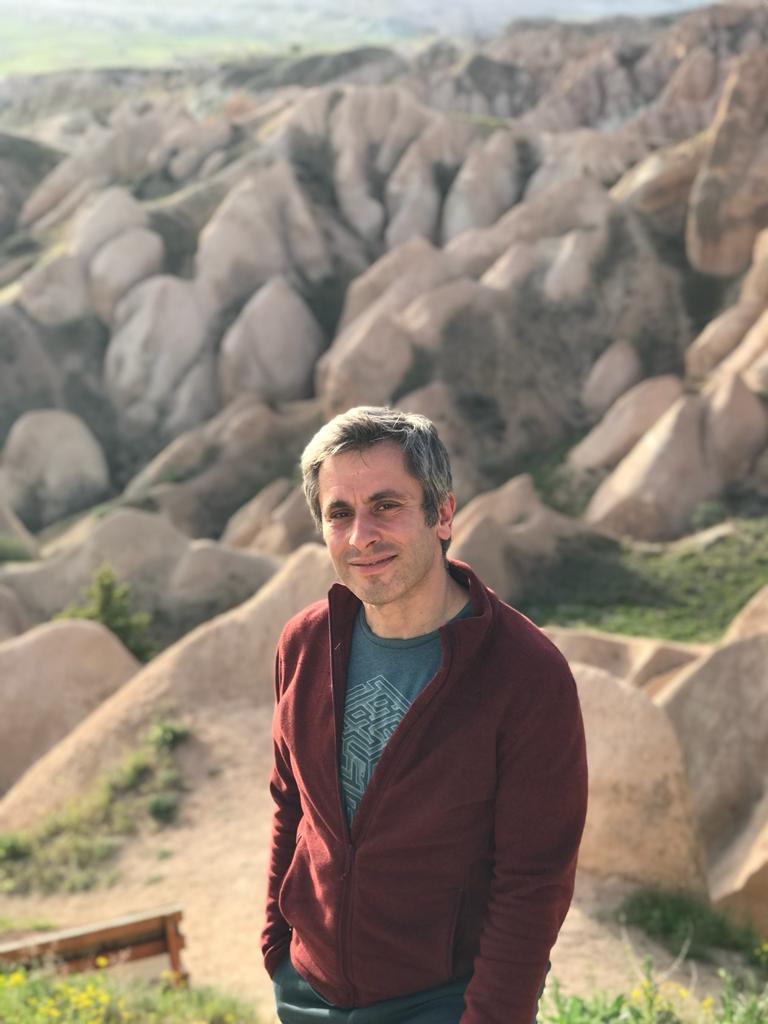
Background
I am an associate professor of psychiatry at Hacettepe University in Ankara, Turkey. I have been a faculty member and involved with the training of medical students and psychiatry residents since 2010. My primary clinical and research interests include mental health related to diversity in sexual development, gender identity and expression, sexual orientation, and especially the effects of discrimination on the mental well-being of individuals and their families. I am the chair of the multidisciplinary board on healthcare issues related to gender identity at Hacettepe University, which is the structure managing the medical and medicolegal management of the gender affirmative medical procedures, providing medical reports for practitioners and legal documents for courts. While I served in the board, Hacettepe University became one of the leading centers for gender-affirming medical care in Turkey.
Beyond my responsibilities in the clinic, for more than ten years now I have participated in monthly meetings of parents of LGBTI+s in Ankara as moderator/facilitator. I have actively participated in the organization of numerous educational programs on these issues for mental health professionals with their professional organizations and LGBTI+ or parents’ organizations. I have always maintained close relationships with LGBTI+ organizations in Turkey, and am publicly well-known as LGBTI+ rights ally and defender. I contributed to the recently published 8th version of the Standards of Care as an author in a few chapters.
I have experience in professional organizations. I am the immediate past president of the Psychiatric Association of Turkey, where I was the secretary general between 2018-2021 and the president between 2021-2022. I am currently a member of the Committee on Ethics in the Association. I also have board experience in other national professional associations, where I was the liaison for international affairs. I was trained as a sex therapist in the Association for Sexual Education, Treatment, and Research in Turkey. I served as an executive committee member of the Association from 2018-2020, and still act as an educator on sexual and gender diversity in training programs.
And, as obvious, I have a tendency to write and talk long, which I’m still trying to control.
Vision for EPATH
Since my early years as a medical student and throughout my professional career as a medical doctor and psychiatrist for more than 20 years, I have been aware that healthcare is not and should not be considered confined to clinical practice and within the boundaries of healthcare institutions. Whether for protection, prevention, strengthening, or assistance and treatment, health-related work should be informed by societal structures and inequalities and designed to respond appropriately. At all levels, these should be guided by scientific findings, but maintaining close interaction and participation with people is essential for achieving the most effective, adaptable, and accessible delivery of healthcare. Through my involvement in student and professional organizations, I became convinced that organized behavior provides movements the strength and enrichment required for achievement of goals.
My first encounter with the EPATH community at the first Conference in Ghent was both exciting and gratifying, indicating that it may be the correct path to pursue and actively contribute at an international level to improve healthcare for trans and gender diverse individuals in Turkey and Europe. Over the years, we have witnessed EPATH’s organizational development as a result of its accumulated experience and increasing popularity. Now, with the sociopolitical climate becoming more threatening for trans and gender diverse individuals, as well as clinicians and researchers working in this domain, I felt compelled to assume greater responsibility and decided to be a candidate.
EPATH must increase its strength and capacity through a greater diversity of representation in all regional, professional, and identity experiences. A stronger EPATH, with enhanced inclusivity and communication with the community, can facilitate and support research and emerging healthcare delivery models in Europe. Moreover, the current political climate necessitates that EPATH takes a solid and courageous stance concerning rights and equality and have the means to communicate its message to societies and policy-makers. Finally, this may be possible by building alliances with national and international agencies since solidarity remains the most effective solution.
Laura Garner
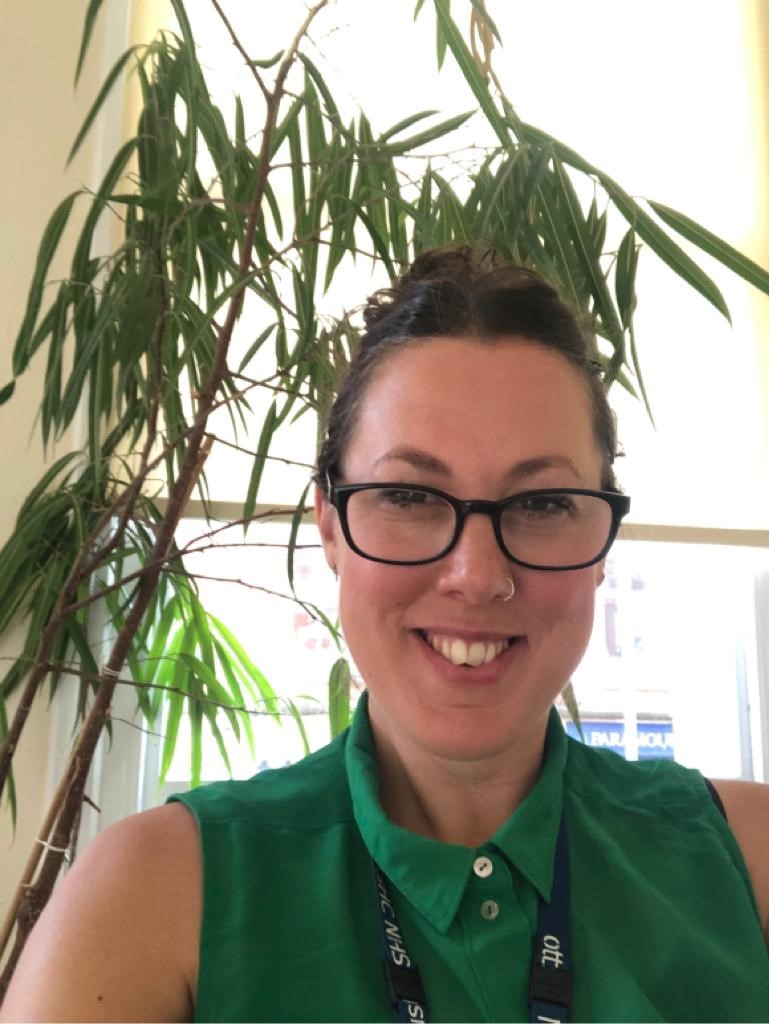
Background
Laura works as a clinical nurse specialist in transgender health at the Nottingham Centre for Transgender Health Network. This is the largest services network for trans and gender diverse (TGD) adults in the UK. She has worked at this service for more than 5 years. Laura initially trained as a general nurse, and she brings nearly two decades of nursing experience to the role as well as multiple specialities, including HIV and Sexual Health. She has also worked for many years with vulnerable populations including homeless people and those with substance abuse.
As a lead clinician at the service, Laura offers a non-pathological approach when working with adult trans and gender diverse people. Laura’s role includes the initiation of gender affirming medical treatment and the support of TGD people throughout their medical transition. She also offers sexual health and contraception advice and has developed associated service user resources and training for professionals.
Laura is also part of the senior leadership team within the service and leads a large nursing team who undertake a range of responsibilities within the service and who also come from very diverse professional backgrounds.
Laura is the founder and chair of the first “Nurses in Gender Network” in the British Isles, which comprises of approximately 90 members working in trans health across the private and public sectors. She is also a founding member and Co-Chair of the Non-Medical Prescribers in Gender Group. This group includes nurses, pharmacists and other Allied Health Professionals who have undertaken extra training and are able to prescribe and advise regarding gender affirming medications.
Laura works closely with the research, education and training team within the Nottingham Network and regularly engages in education and service user/community engagement events. She has presented the results of her work at EPATH and at the British Association of Gender Identity Specialists (BAGIS) and has been nominated for awards on multiple occasions for her work and innovation. Laura has gained research and innovation funding from local commissioners and the Queens Nursing Institute.
Vision for EPATH
Election to the EPATH board would not only be a huge personal honour for Laura; It would also be a recognition of the nursing profession’s pivotal place and role within Transgender Health. Having a nurse on the EPATH board will encourage the professional diversification of the Board and allow transgender health to benefit from nurses’ unique skills including communication, advocacy, and the promotion of wider health and wellbeing, including sexual health. She will bring a strong commitment to the role and is passionate about working collaboratively and innovatively. She would relish the opportunity to bring her unique experience to both the Board and EPATH. The inclusion of a nursing professional on the Board would be a further positive step towards moving away from pathologizing transgender healthcare.
Maria Cristina Meriggiola

Background
Dr Maria Cristina Meriggiola is associate professor at University of Bologna and senior consultant at IRCCS Azienda Ospedaliero Universitaria di Bologna, Clinic of Gynecology and Physiopathology of Reproduction. She is responsible of the Center for Transgender Health at the Hospital and has an active collaboration with MIT (Movimento Identità Trans).
Her scientific as well as clinical work include transgender care, contraception, intersex conditions, and menopause.
She is one of the funding member of SIGIS (Italian Society Gender Identity Health) and she is in the Board of Directors of this society.
Vision for EPATH
My vision of EPATH is a leading role in three main sectors of the communities life:
- promote research as the only means to provide evidence-based transgender affirming care;
- in these dark times, EPATH should play a crucial role to protect rights of transgender people in Europe, intarcting with European Institutions; and
- promoting education on gender issues in European countries among people but also within the medical communities, as the only means to fight prejudice and discrimination.
Rufus Cartwright
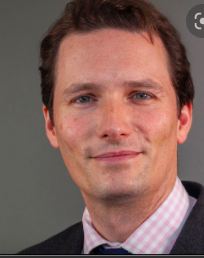
Background
Dr Rufus Cartwright MA MD(res) PhD MRCOG is a consultant gynaecologist at Chelsea and Westminster Hospital NHS Foundation Trust, UK, and Honorary Senior Lecturer at the Institute of Reproductive and Developmental Biology, Imperial College London. He works as the research lead for the UK’s national Gender Affirmation Surgery service. He is an editor for the International Urogynecology Journal, and Continence Journal, and sits on the Scientific Committees for the International Urogynecological Association and EPATH. He has more than one hundred peer-reviewed publications mainly focused on the clinical, classical and genetic epidemiology of pelvic floor disorders.
Vision for EPATH
My vision is for EPATH to develop as a research-led organisation, with evidence-based medicine at the heart of our efforts to advance the field of transgender health.
- Prioritize research: EPATH should prioritize research as a core activity, investing time and resources into developing and conducting high-quality research studies that address key questions in transgender health.
- Foster collaboration: EPATH should foster collaboration among researchers, clinicians, and patient advocates, promoting a multidisciplinary approach to transgender health research that draws on diverse perspectives and expertise.
- Build research infrastructure: EPATH should invest in building research infrastructure, including data repositories, registries, and biobanks, that support high-quality research studies and facilitate data sharing and collaboration.
- Support early-career researchers: EPATH should support early-career researchers, providing mentorship, training, and funding opportunities that enable them to build successful research careers in the field of transgender health.
- Promote evidence-based practices: EPATH should promote evidence-based practices in transgender health care, using research findings to inform clinical decision-making and guide the development of cutting-edge guidelines.
- Disseminate research findings: EPATH should disseminate research findings widely, sharing results through publications, presentations, and educational programs that promote the translation of research into practice.
By implementing this vision, the EPATH Society can become a research-led organization that drives innovation, advances the field of transgender health, and ultimately improves the lives of transgender individuals around the world.
Tea Dakić

Background
Country of residence: Montenegro
Pronouns: She/Her
Main profession: Medical Doctor, Psychiatrist at the Clinical Psychiatry, Clinical Center of Montenegro
Specialty: Psychiatry, Bioethics, Human Rights, Research Ethics and Clinical Ethics.
Short biography and background:
I am a Medical Doctor, Specialist in Psychiatry, and Master of Science in Bioethics, with a demonstrated history of more than 10 years of dedicated work in medical practice and in the field of human rights. I have closely worked with local and regional non-government organizations and gained experience in human rights education, analysis and monitoring, while also serving as an activist for members of the marginalized communities, especially LGBTIQ persons. I have also worked as an educator for other professionals who work with LGBTIQ persons and TGV persons in particular. Through both my clinical work and my work as an activist I have both publically and in professional circles advocated for depathologization of TGV identities, and criticized regional professional practices that do not comply with the highest ethical and professional standards of care for TGV persons. I am one of the authors in the publication “Medical Aspects of Gender Reassignment: Manual for medical professionals and healthcare workers on providing services and support to trans persons in the transition process”, signing a chapter on Transition Process for Gender Nonconforming Transgender and Transgender Persons – Perspective of Psychiatry, which was the first of its kind in our region. I also authored a publication on Good Practice Guidelines for Professionals Providing Psychosocial Support for TGV persons with the experience of violence and harassment, which is currently in publication. I have also published other works and research findings in the field of psychiatry and bioethics in professional academic journals, as well as in government and non-government publications. I currently serve as the Head of the Department for Partial Hospitalization at the Clinic for Psychiatry, Clinical Center of Montenegro. I also serve as the President of the Commission for Ethical Issues and Deontology with the Medical Chamber of Montenegro.
Vision for EPATH
I strongly support the mission of EPATH and WPATH to increase the quality of life among transgender people globally, to promote and protect the rights of TGV persons to the highest attainable level of health, equally to that other members of society enjoy. My wish is to see EPATH and WPATH uphold a firm position in promoting those rights and implementing quality standards of care in every part of the world, and contribute to putting an end to harmful treatments that TGV persons still largely face when dealing with professionals accessing different services to fulfil their specific needs. I have been a part of that process “on the ground” and I will continue that mission in my everyday work and human rights advocacy, and I would be much honored to be able to do so as a board member for the EPATH as well.
Trinidad Labanca

Background
Trinidad Labanca is an accomplished ObGyn from Argentina, with more than 10 years of experience in delivering successful patient care and working on improving the lives of patients, providing leadership for advancing gender equality and healthcare. She finished her ObGyn residency at Hospital Italiano de Buenos Aires and spent the first years of her career practicing there. She quickly gained awareness of the limited training (and surgeons) in gender-affirming surgery in Argentina, hence she applied and earned a fellowship next to Dr.Ivan Mañero at IM Clinic (Institute of Plastic Surgery Dr. Ivan Mañero) in Barcelona, Spain. IM Clinic is a reference centre in gender-affirming surgery, with more than 25 years of experience working in the field of transexualism, having operated on more than 3,500 patients worldwide.
Additionally, she graduated with an MBA in Healthcare Management at University of Rey Juan Carlos, Madrid, Spain to gain proficiency in business and healthcare management.
Trinidad moved back to Buenos Aires to pursue her strong desire to promote transgender rights and provide high quality care for trangender people in Argentina. She quickly became the Chief of Gender Unit at Dr Bernardo Houssay Public Hospital, where she trained a group of 30 people including front desk personnel, nurses, social workers, psychologists and fellow doctors and surgeons, to promote an inclusive space for transgender people. Nowadays, the gender unit at Dr Bernardo Houssay Hospital represents one of the most popular public Gender Units in Argentina.
While in Argentina, Trinidad graduated as a Sexologist and Sexual Therapist, focusing on transgender sexual wellbeing, both prior and after sexual confirming surgery.
Three years later, she is now the IM Gender Unit Medical Director at IM Clinic in Barcelona, Spain. She currently performs more than 300 gender-affirmation procedures per year. She specializes in all vaginoplasty techniques, phalloplasty, chest masculinization surgery and breast augmentation, among others.
Trinidad has published several peer-review articles in 1st quartile journals and has dedicated her entire career to the care of transgender people, always seeking the best quality evidence-based care.
She works and lives in Barcelona, and provides guidance and training in several countries of LatinAmerica.
